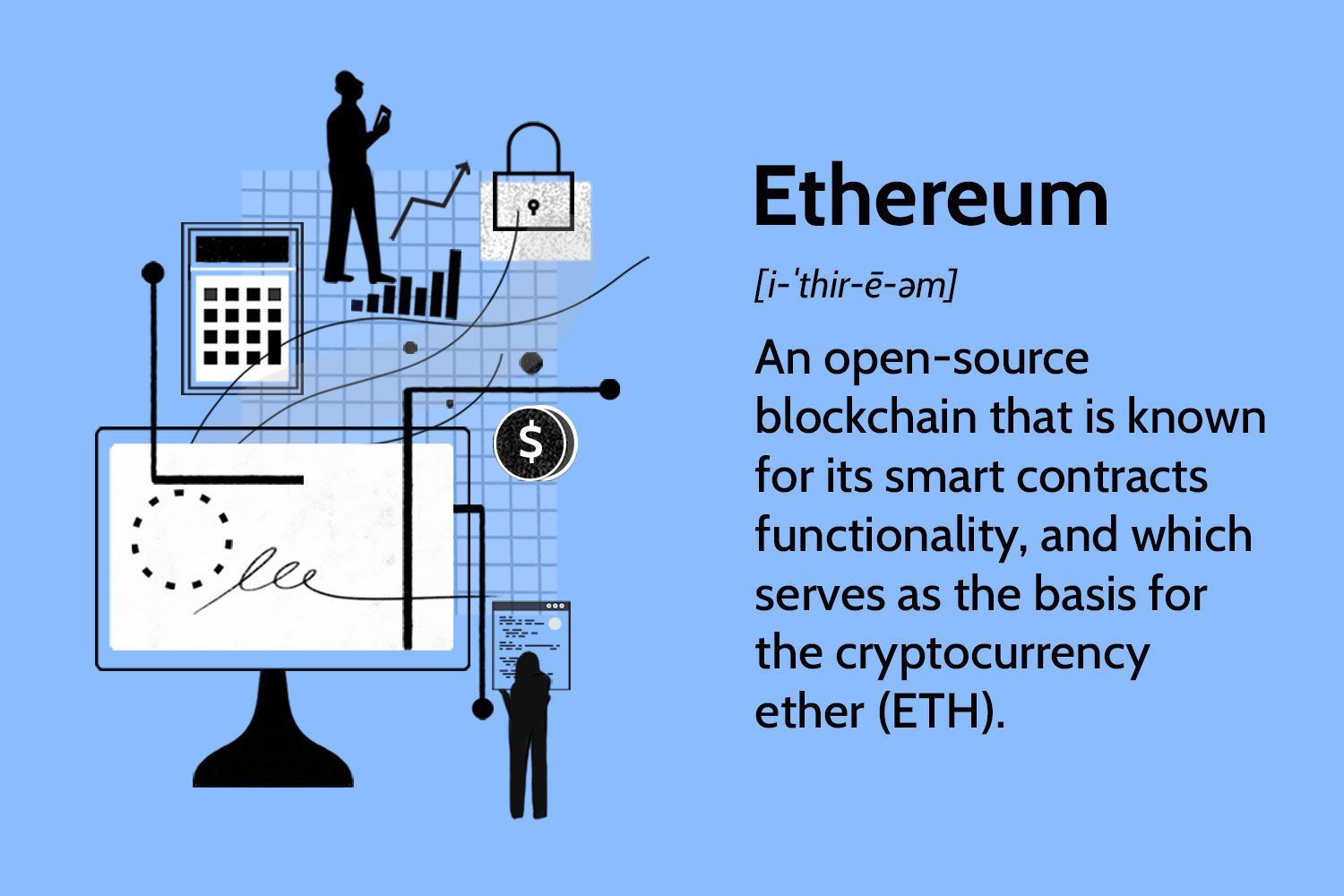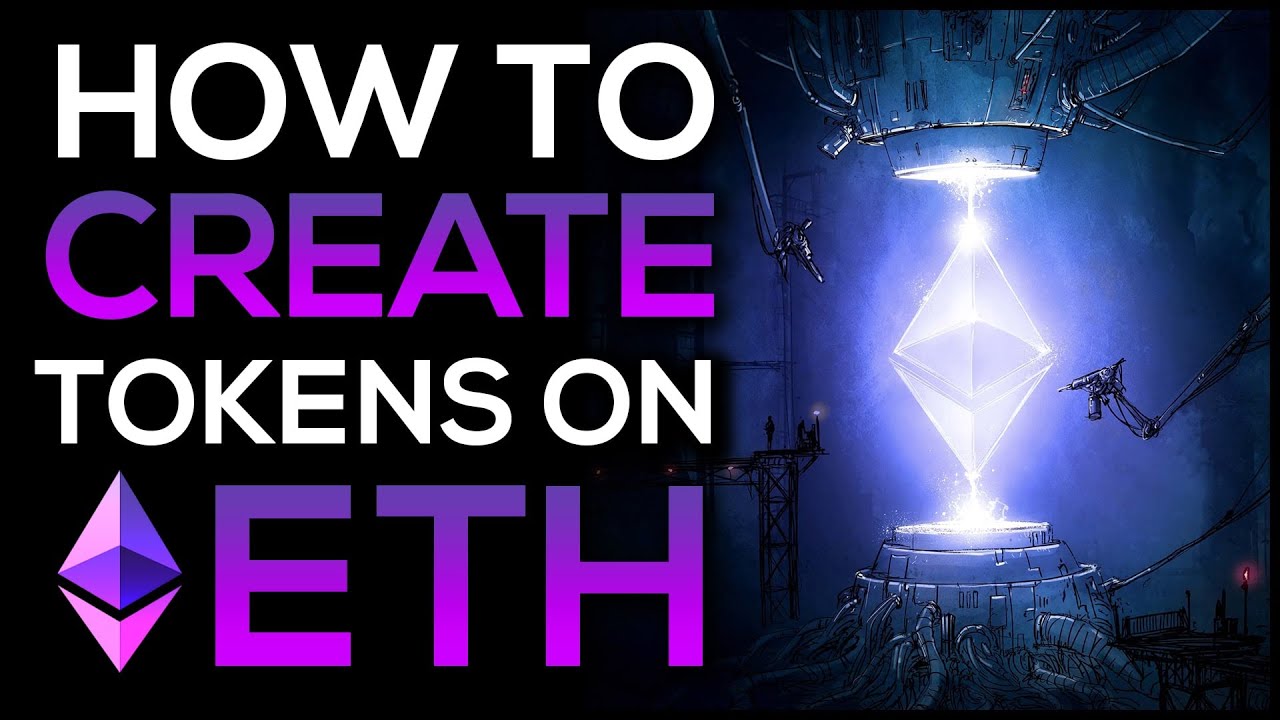Introduction
Welcome to the fascinating world of smart contracts and Ethereum! In today’s digital age, technology is continuously evolving, and the way we conduct business is changing rapidly. One significant technological advancement is the introduction of smart contracts, which have the potential to revolutionize traditional methods of agreement and execution.
Smart contracts are an innovative concept that combines computer programming, cryptography, and blockchain technology to create self-executing contracts with predefined conditions and outcomes. These contracts not only automate the agreement process but also ensure its integrity, transparency, and security.
At the heart of the smart contract revolution is Ethereum, a decentralized blockchain platform that enables the creation and execution of smart contracts. While Bitcoin focuses on digital currency, Ethereum takes it a step further by providing a programmable platform on which developers can build decentralized applications (dApps) and deploy smart contracts.
The concept of smart contracts is not entirely new. It was initially introduced by computer scientist and legal scholar Nick Szabo in the 1990s, who envisioned these digital contracts as self-executing protocols with the terms of the agreement directly written into the code. However, it is the emergence of blockchain technology, specifically Ethereum, that has made this concept a reality.
By leveraging the decentralized and immutable nature of blockchain, smart contracts on Ethereum allow for a trustless and tamper-proof execution of agreements. This means that once a contract is deployed on the Ethereum network, it cannot be altered or manipulated by any party involved, ensuring transparency and fairness.
Moreover, the automation and elimination of intermediaries brought about by smart contracts can result in significant cost savings and increased efficiency. Traditional contract execution often involves multiple intermediaries, lengthy legal processes, and the possibility of human error. Smart contracts aim to streamline this process, reducing the need for intermediaries and enabling speedy, error-free execution of agreements.
In the following sections, we will delve deeper into the workings of smart contracts in Ethereum, explore their benefits and applications, and discuss the potential risks and challenges associated with this emerging technology. So, let’s embark on this exciting journey of smart contracts and discover the opportunities that Ethereum brings.
What are smart contracts?
Smart contracts, as the name suggests, are computer programs that facilitate, verify, and enforce the negotiation and execution of contracts. These contracts are designed to automatically execute predefined actions once the specified conditions are met. Unlike traditional contracts, which require manual enforcement and intermediaries, smart contracts are self-executing and eliminate the need for third-party involvement.
Smart contracts operate on the principle of “code is law.” The terms and conditions of the agreement are translated into computer code, ensuring that the contract’s execution is objective, impartial, and transparent. This eliminates ambiguity and reduces the risk of fraudulent activities and disputes.
The underlying technology that powers smart contracts is blockchain. A blockchain is a decentralized and distributed ledger that records all transactions and actions performed within the network. Every participant in the network has access to a copy of the blockchain, ensuring consensus and security.
Smart contracts function by using if-then statements. For instance, if X happens, then Y will be executed. The conditions and actions are programmed in the contract, and once the preconditions are met, the contract is automatically executed without any manual intervention.
One important characteristic of smart contracts is their immutability. Once deployed on a blockchain, a smart contract cannot be altered or tampered with, ensuring the integrity of the agreement. This immutability, combined with the decentralized nature of blockchain, makes smart contracts highly secure and resistant to hacking and fraud.
Smart contracts have the potential to revolutionize a wide range of industries, including finance, supply chain management, real estate, healthcare, and more. They can streamline and automate complex processes, enhance efficiency, reduce costs, and enable new business models.
It’s worth noting that while smart contracts are powerful tools, they are not a substitute for legal contracts. While the code within smart contracts can define the terms of the agreement, it cannot address every legal scenario and jurisdiction-specific considerations. Therefore, smart contracts should be seen as complementary to legal contracts and should be drafted with legal expertise.
In the next section, we will explore Ethereum, the blockchain platform that facilitates the creation and execution of smart contracts.
What is Ethereum?
Ethereum is a decentralized blockchain platform that goes beyond being just a cryptocurrency like Bitcoin. It is a programmable blockchain that enables the development and execution of smart contracts and decentralized applications (dApps). Ethereum was proposed by Vitalik Buterin in late 2013 and officially launched in 2015.
At its core, Ethereum provides a platform for developers to build and deploy decentralized applications and smart contracts. It features a Turing-complete programming language called Solidity, which allows developers to design and program complex smart contracts with various functionalities and logic.
Unlike Bitcoin, which primarily focuses on financial transactions, Ethereum is designed to support a wide range of applications beyond simple transfers of value. It provides a virtual machine called the Ethereum Virtual Machine (EVM) that can execute smart contracts across the network.
Ethereum operates on a decentralized network of computers called nodes, which collectively form a blockchain. Each node in the network maintains a copy of the blockchain and participates in validating and securing transactions. This decentralized nature ensures the integrity and security of the Ethereum network.
One of the key features of Ethereum is its ability to issue and manage its own cryptocurrency, called Ether (ETH). Ether is used to facilitate transactions and pay for computational resources on the Ethereum network. It serves as the fuel that powers the execution of smart contracts and incentivizes network participants.
Another significant aspect of Ethereum is its governance structure. Decisions regarding upgrades and changes to the Ethereum protocol are made through a consensus mechanism known as Ethereum Improvement Proposals (EIPs). This allows the Ethereum community to participate in shaping the future direction of the platform.
Ethereum has gained significant traction and popularity due to its versatility and potential applications. It has enabled developers to create decentralized applications that offer a wide range of services, such as decentralized finance (DeFi), non-fungible tokens (NFTs), gaming, digital identity, and more.
Moreover, Ethereum has attracted the attention of industry giants and businesses looking to leverage blockchain technology. Many organizations have started exploring the use of Ethereum for various use cases, such as supply chain management, voting systems, and intellectual property rights management.
In the next section, we will dive into how smart contracts work in Ethereum, highlighting their unique characteristics and capabilities.
How do smart contracts work in Ethereum?
In Ethereum, smart contracts are created using the Solidity programming language and are stored on the Ethereum blockchain. They are self-executing contracts that automatically execute predefined actions when specific conditions are met.
When a smart contract is deployed on the Ethereum network, it is assigned a unique address, which acts as its identifier or location on the blockchain. This address allows users to interact with and invoke the functions defined within the smart contract.
Smart contracts on Ethereum are executed by the Ethereum Virtual Machine (EVM), a runtime environment that processes and executes the code written in Solidity. The EVM ensures that the smart contract’s execution is consistent across all nodes in the network, achieving consensus.
Smart contracts are triggered by transactions sent to their address on the Ethereum blockchain. These transactions contain the necessary data and instructions for the smart contract to execute a specific function or update its state.
One important characteristic of smart contracts in Ethereum is their deterministic nature. This means that given the same inputs, a smart contract will always produce the same output. Determinism ensures that the execution of smart contracts is predictable and reproducible, which is crucial for maintaining consensus on the blockchain.
Smart contracts in Ethereum can store and update data within their internal state. This data can include variables, mappings, and arrays, allowing smart contracts to maintain and manipulate information relevant to the agreement or application they represent.
To interact with a smart contract on Ethereum, users can send transactions to its address, invoking the functions defined within the contract. These transactions can contain input parameters that modify the behavior or state of the smart contract.
Once a transaction invoking a smart contract function is sent to the Ethereum network, the transaction is included in a block. Miners on the network compete to validate and add the block to the blockchain. Once the block is added and confirmed, the smart contract’s function is executed, and the changes in the contract’s state are reflected on the blockchain.
In addition to executing actions based on predefined conditions, smart contracts in Ethereum can interact with other smart contracts and external systems. This allows for complex and interconnected decentralized applications to be built on the Ethereum platform.
It’s important to note that executing smart contracts on the Ethereum network incurs a cost in terms of computational resources and transaction fees. These costs are denominated in Ether (ETH) and are paid by users interacting with the smart contract. This mechanism helps prevent abuse and ensures the efficiency and security of the Ethereum network.
Now that we have explored how smart contracts work in Ethereum, let’s move to the next section where we will discuss the various benefits of utilizing smart contracts in the Ethereum ecosystem.
Benefits of using smart contracts in Ethereum
Smart contracts in Ethereum offer numerous benefits that have the potential to transform various industries and revolutionize traditional business processes. Let’s explore some of the key advantages:
- Automation: Smart contracts automate the execution of agreements, eliminating the need for intermediaries and manual intervention. This streamlines processes and reduces the potential for human error, resulting in increased efficiency and operational cost savings.
- Transparency: The decentralized nature of Ethereum ensures transparency in smart contract execution. Once deployed on the blockchain, smart contracts are visible to all participants and cannot be altered or tampered with. This transparency builds trust and enhances accountability.
- Immutability: Smart contracts in Ethereum are immutable, meaning that once deployed, they cannot be modified or tampered with. This feature ensures the integrity of agreements by preventing unauthorized changes, making the execution process more secure and reliable.
- Cost savings: By eliminating intermediaries and automating processes, smart contracts reduce costs associated with third-party services and manual paperwork. This can result in significant cost savings for businesses and individuals, making transactions more cost-effective and accessible.
- Efficiency: Smart contracts in Ethereum enable faster and smoother transaction processing. With automation and digitization, the time required for contract execution, settlement, and verification is significantly reduced, leading to quicker turnaround times and improved efficiency.
- Security: The use of blockchain technology in Ethereum ensures a high level of security for smart contracts. The decentralized and distributed nature of the blockchain makes it extremely difficult for malicious actors to alter or manipulate the contracts, providing robust protection against fraud and hacking.
- Elimination of counterparty risk: Smart contracts eliminate the need for trust between parties. The code within the contract defines the terms and conditions of the agreement and automatically executes them, reducing the risk of non-compliance or default by any party involved.
- Global accessibility: Ethereum is a global platform, accessible to anyone with an internet connection. Smart contracts on Ethereum can be accessed and executed by participants from different geographical locations, enabling borderless and inclusive transactions.
These benefits make smart contracts in Ethereum an attractive option for a wide range of applications. From financial services and supply chain management to healthcare and real estate, smart contracts have the potential to revolutionize how agreements are made and executed.
In the next section, we will explore some real-world examples of smart contracts in action on the Ethereum platform, showcasing the practical applications of this innovative technology.
Examples of smart contracts in Ethereum
Smart contracts in Ethereum have been utilized in various real-world applications, demonstrating the versatility and potential of this technology. Let’s explore a few examples:
- Decentralized Finance (DeFi): Ethereum has become the foundation for the booming DeFi ecosystem. Smart contracts power decentralized lending platforms, automated liquidity pools, decentralized exchanges, and yield farming protocols. These applications automate financial transactions and eliminate the need for intermediaries, providing users with greater control over their assets.
- Supply Chain Management: Smart contracts play a crucial role in improving transparency and traceability in supply chains. Through Ethereum, smart contracts can track and authenticate the movement of goods, verify product authenticity, and automate payment settlements between suppliers, manufacturers, and retailers.
- Tokenization and Non-Fungible Tokens (NFTs): Ethereum enables the creation and management of digital assets through smart contracts. These assets can represent ownership rights to physical or digital assets, such as artwork, real estate, or collectibles. Non-Fungible Tokens (NFTs) are unique digital assets that can be bought, sold, and traded on Ethereum, providing new opportunities for artists, content creators, and collectors.
- Voting Systems: Smart contracts on Ethereum facilitate secure and transparent voting systems. By deploying voting contracts, elections can be conducted on the blockchain, ensuring accurate and tamper-proof results. The transparency and immutability of Ethereum make it an ideal platform for implementing robust and trustworthy voting mechanisms.
- Insurance: Smart contracts in Ethereum revolutionize the insurance industry by automating claim settlements. Insurance policies encoded as smart contracts can assess and validate claims based on predefined conditions, expediting the process and minimizing the risk of fraud. This enhances transparency and accountability in the insurance sector.
- Decentralized Autonomous Organizations (DAOs): Ethereum allows the creation of decentralized autonomous organizations, which are governed by smart contracts. These organizations operate without a centralized authority and make decisions through voting mechanisms encoded in smart contracts. DAOs enable transparent and community-driven governance structures and have the potential to disrupt traditional organizational models.
These examples only scratch the surface of the many possibilities and use cases for smart contracts in Ethereum. From healthcare and real estate to gaming and intellectual property rights management, smart contracts have the potential to transform various industries and reshape how agreements and transactions are conducted.
In the next section, we will discuss the risks and challenges associated with using smart contracts in Ethereum, highlighting the importance of careful planning and security measures.
Risks and challenges of using smart contracts in Ethereum
While smart contracts in Ethereum offer numerous advantages, they also come with certain risks and challenges that need to be considered. Let’s explore some of the key concerns:
- Code Vulnerabilities: Smart contracts are written in code, and like any code, they can have vulnerabilities. If a smart contract has security flaws or bugs, it can be exploited by malicious actors. It is crucial to thoroughly audit and test smart contract code to minimize the risk of vulnerabilities.
- Immutability: While the immutability of smart contracts is a benefit in terms of security and integrity, it can also pose challenges. Once a smart contract is deployed, it cannot be easily modified. This means that if errors or vulnerabilities are discovered, it can be challenging to rectify them without creating a new contract or implementing upgrade mechanisms.
- Legal and Regulatory Compliance: Smart contracts may face challenges when it comes to legal and regulatory compliance. While smart contracts can automate the execution of agreements, they must still comply with existing laws and regulations. It’s important to ensure that smart contracts are legally enforceable and align with the applicable legal frameworks in each jurisdiction.
- Privacy Concerns: Ethereum’s blockchain is public, which means that the contents of smart contracts are visible to all participants. While this enhances transparency, it can raise privacy concerns, especially when dealing with sensitive or confidential information. Care must be taken to ensure that sensitive data is appropriately protected or encrypted within smart contracts or off-chain.
- Scalability: As the Ethereum network grows in popularity, scalability becomes a challenge. The limited transaction processing capacity of the Ethereum network can result in congestion and higher transaction fees during peak times. This can impact the efficiency and cost-effectiveness of smart contract execution, particularly for high-frequency or high-volume applications.
- Oracles and External Data: Smart contracts often require access to external data sources, such as market prices or real-world events, to execute certain functions. However, obtaining reliable and tamper-proof data from external sources (known as oracles) can be a challenge. Ensuring the security and accuracy of data fed into smart contracts is crucial to prevent manipulation or incorrect execution.
- User Error and Irrevocable Actions: Once a transaction is sent to a smart contract, it cannot be reversed. Any mistakes or errors in the transaction or input data can have irreversible consequences. Users must exercise caution when interacting with smart contracts and carefully review the inputs and conditions to avoid unintended or irreversible actions.
Addressing these risks and challenges requires a combination of technical expertise, careful planning, and ongoing monitoring. Solid security practices, code audits, and rigorous testing can help mitigate the vulnerabilities and risks associated with smart contracts in Ethereum.
Despite these challenges, the benefits and potential of using smart contracts in Ethereum outweigh the risks. With the right precautions and a proactive approach to security, smart contracts can bring about significant improvements in efficiency, transparency, and cost savings, paving the way for a decentralized and trustless future.
In the final section, we will summarize the key points discussed and highlight the transformative potential of smart contracts in the Ethereum ecosystem.
Conclusion
Smart contracts in Ethereum are revolutionizing the way agreements are made and executed. These self-executing contracts, powered by blockchain technology, offer automation, transparency, security, and efficiency across various industries.
Ethereum, with its programmable platform and decentralized network, provides a fertile ground for the development and deployment of smart contracts. From decentralized finance (DeFi) and supply chain management to voting systems and digital assets, Ethereum showcases the versatility and potential of smart contracts.
However, it’s important to recognize the risks and challenges associated with smart contracts. Code vulnerabilities, regulatory compliance, scalability, privacy concerns, and the irrevocable nature of actions are factors that must be carefully considered and addressed.
Despite these challenges, the benefits of smart contracts in Ethereum are clear. They automate processes, increase transparency, reduce costs, enhance security, and eliminate the need for intermediaries. Smart contracts have the potential to reshape industries, streamline operations, and unlock new opportunities for businesses and individuals.
As the Ethereum ecosystem continues to evolve and mature, it is crucial for developers, businesses, and users to prioritize security, conduct thorough code audits, and stay informed about best practices. By doing so, we can harness the full potential of smart contracts and navigate the challenges that arise.
Smart contracts in Ethereum are not just a technological innovation; they represent a paradigm shift in how we approach agreements and transactions. With careful planning, robust security measures, and ongoing advancements, smart contracts have the potential to create a more transparent, efficient, and inclusive global economy.
So, let’s embrace the power of smart contracts in Ethereum and explore the boundless possibilities that lie ahead in this exciting and transformative technology.

























